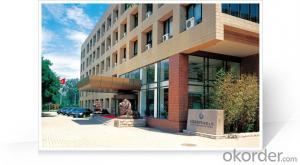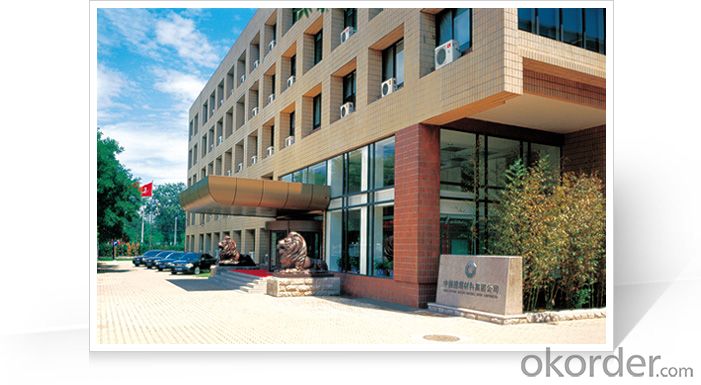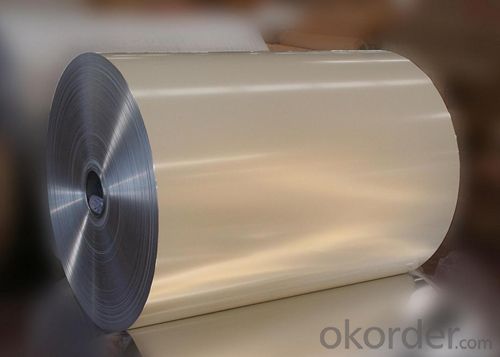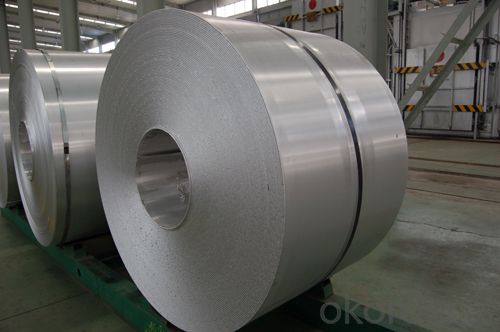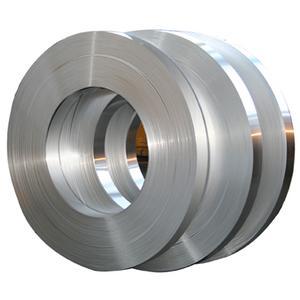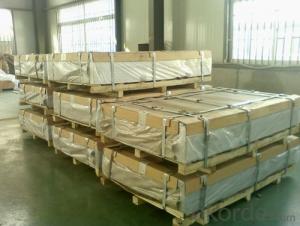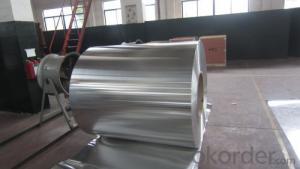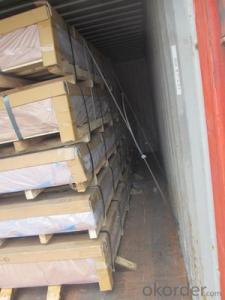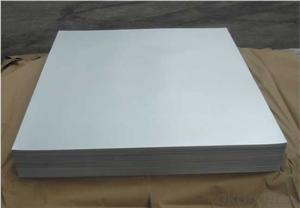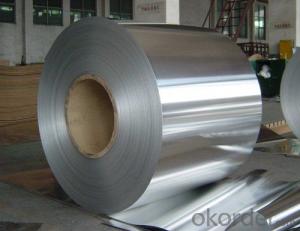1070 Aluminum Coil for Sale - Aluminium Coil Sheet in 1100, 3003, 5052, 5754
- Loading Port:
- Shanghai
- Payment Terms:
- TT OR LC
- Min Order Qty:
- 20 m.t
- Supply Capability:
- 10000 m.t/month
OKorder Service Pledge
OKorder Financial Service
You Might Also Like
Specification
1. Specification of Aluminum
1) Alloy | 1050, 1060,1100, 3003 3004 3105 3005 5005 5052 etc |
2) Temper | O/H12/H14/H1/H18/H32/H34/H36/H38//H111/H112/H116/H321/T6/T651/T3/T351 etc |
3) Thickness | 0.1mm to 6mm |
4) Width | 20mm to 3300mm |
5) Coil weight | 100kgs to 6 tons depends on actual requirement |
6) Core material | Aluminum alloy |
7) Coil Inner diameter | 76mm, 152mm,or as required |
2. Application of Aluminum
Aluminum is a versatile material integral to modern life. The metal is found in everything from soda cans to cell phones to window frames to airplanes. The process for making the aluminum that goes into these products is found in the pages within the Industries section. Details about end use products are found in the Product Markets section. To learn more about each stage of the aluminum process, click on the icons below
3. Feature of Aluminum
In 1954, there were 75 registered aluminum alloys. Today, there are more than 530 registered active compositions and that number continues to grow. That underscores how versatile and ubiquitous aluminum has become in our modern world. So what are aluminum alloys and why are they important?
4. Certificate:
SGS and ROHS(if client request, paid by client), MTC(plant provided), Certificate of Origin(FORM A, FORM E, CO), Bureau Veritas and SGS (if client request, paid by client), CIQS certificate
5. Image of Aluminum
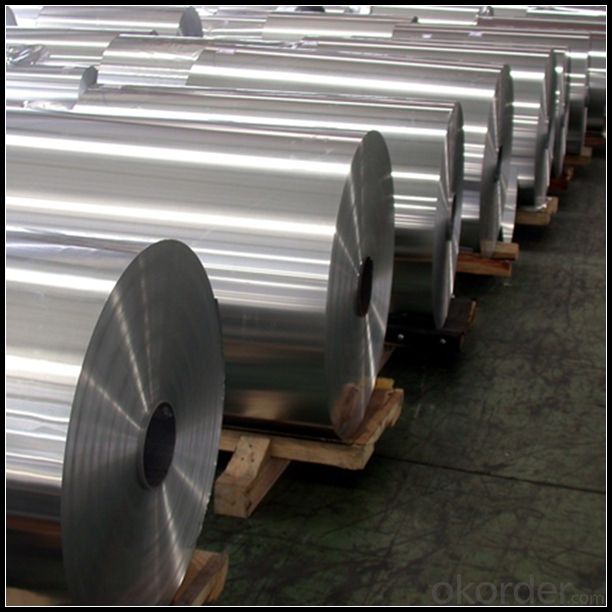
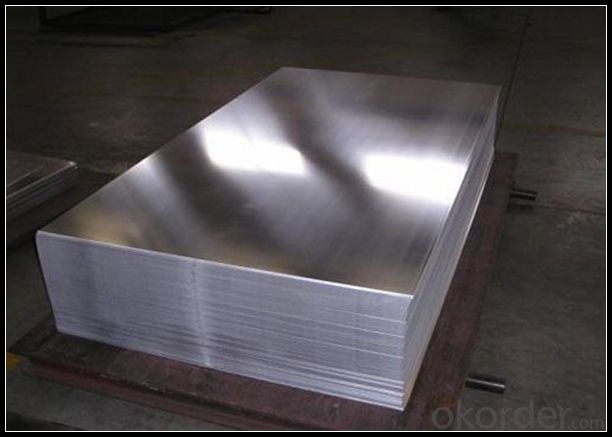
6. FAQ
Q: What is the produce prase? | ||||
A: Normally it would be 40days after received your deposit. | ||||
Q: Can you provide free samples? | ||||
A: Yes, free samples will be sent to you on freight at destination. | ||||
Q: Can I get your latest catalogue? | ||||
A: Yes, it will be sent to you in no time. | ||||
Q: What is the MOQ? | ||||
A: 3 tons | ||||
Q: What are your payment terms? | ||||
A: We accept L/C, D/A, D/P, T/T, West Union,etc. |
- Q: Can aluminum coils be used in food processing applications?
- Yes, aluminum coils can be used in food processing applications. Aluminum is a widely used material in the food industry due to its excellent thermal conductivity, corrosion resistance, and lightweight properties. Aluminum coils are commonly used in food processing equipment such as refrigerators, ovens, and food storage units to ensure proper temperature control and hygiene during food processing.
- Q: What is the price range of aluminum coils?
- The price range of aluminum coils can vary greatly depending on factors such as the grade and thickness of the aluminum, quantity purchased, and current market conditions. Typically, aluminum coils can range from $1 to $5 per pound.
- Q: How do aluminum coils contribute to sustainable energy systems?
- Aluminum coils play a crucial role in sustainable energy systems due to several reasons. Firstly, aluminum is a lightweight and highly conductive metal, making it an ideal material for the production of coils used in various renewable energy technologies such as wind turbines, solar panels, and electric vehicles. The lightweight nature of aluminum reduces the overall weight of these systems, thus increasing their efficiency and performance. Secondly, aluminum is abundant in nature and has a high recycling rate. It can be recycled repeatedly without losing its original properties, resulting in significant energy savings and reduced environmental impact. By using aluminum coils, sustainable energy systems can minimize their reliance on virgin materials and promote a circular economy. Furthermore, aluminum coils are corrosion-resistant and have excellent heat transfer properties. This makes them highly durable and capable of withstanding harsh weather conditions, ensuring the longevity and reliability of renewable energy systems. The durability of aluminum coils also reduces the need for frequent maintenance or replacements, thereby minimizing waste generation and conserving resources. Moreover, aluminum is a non-toxic material that poses minimal risks to human health and the environment. Unlike other metals, aluminum does not leach harmful substances into the soil or water, making it a safe choice for sustainable energy systems. Lastly, the use of aluminum coils in sustainable energy systems helps to reduce greenhouse gas emissions. As aluminum is lightweight, it requires less energy to transport and install, thereby reducing the carbon footprint associated with the manufacturing and installation processes. Additionally, the increased efficiency and performance of renewable energy systems using aluminum coils contribute to the displacement of fossil fuel-based energy generation, leading to a reduction in overall carbon emissions. In conclusion, aluminum coils contribute to sustainable energy systems by enhancing the efficiency, durability, recyclability, and environmental friendliness of renewable energy technologies. Their lightweight nature, corrosion resistance, and excellent heat transfer properties make them ideal for various applications, while their abundance and recyclability promote resource conservation and a circular economy. By using aluminum coils, sustainable energy systems can reduce their environmental impact, improve performance, and contribute to a cleaner and more sustainable future.
- Q: What are the different coil leveling options available for aluminum coils?
- Aluminum coils can be leveled using various methods, depending on the specific needs of the application. These options include roller leveling, stretch leveling, tension leveling, and precision leveling. Roller leveling is a commonly used technique that involves passing the coil through a series of rollers. These rollers apply pressure to gradually reduce the thickness of the material and correct any imperfections. This method is efficient and can accommodate different coil sizes and thicknesses. Stretch leveling, on the other hand, involves controlled stretching of the aluminum coil. Powered rollers elongate the material, removing residual stress and improving flatness. This method is particularly effective for thicker and wider coils. Tension leveling utilizes tension to eliminate waviness or unevenness in the coil. The material is passed through bridle rolls that apply tension, resulting in a flattened coil. This technique is commonly used for thinner gauges of aluminum and allows for high-speed processing. For high-precision applications, precision leveling is recommended. This specialized process combines roller leveling, stretching, and tensioning techniques to achieve extremely flat and uniform coils. Industries such as aerospace, automotive, and electronics often rely on precision leveling. Overall, the choice of leveling method for aluminum coils depends on factors like desired flatness, thickness, width, and application requirements. Each technique has its own advantages and limitations, so it is crucial to select the most suitable option to ensure the production of high-quality end products.
- Q: Can aluminum coils be used in architectural applications?
- Yes, aluminum coils can be used in architectural applications. Aluminum is a versatile material that offers excellent durability, corrosion resistance, and a lightweight nature, making it suitable for various architectural uses. It is commonly used in roofing, cladding, facades, windows, and other decorative elements in buildings.
- Q: Is it possible to use a grinder for cutting aluminum coil?
- <p>Yes, you can use a grinder to cut aluminum coil, but it's essential to choose the right type of grinder and blade. A metal cutting grinder with a suitable blade designed for cutting aluminum is recommended. Ensure the blade is sharp and the grinder is powerful enough to handle the material. Always wear appropriate safety gear, including gloves and eye protection, as cutting aluminum can produce sharp edges and flying debris. Be cautious of the heat generated during cutting, as it can warp or damage the aluminum.</p>
- Q: How do I write ionic formula for Sodium Aluminum Silicate? Please explain in a easy way ,,,,,,,,,,,,
- www.okorder /
- Q: How are aluminum coils shipped and transported?
- Aluminum coils are typically shipped and transported in a variety of ways, depending on their size, weight, and destination. Here are a few common methods: 1. Flatbed Trucks: For shorter distances or when shipping smaller aluminum coils, flatbed trucks are commonly used. The coils are securely loaded onto the flatbed and secured with straps or chains to prevent movement during transportation. 2. Intermodal Containers: When shipping aluminum coils over longer distances, intermodal containers are often used. These containers can be loaded onto trucks, trains, or ships, making them a versatile option. The coils are typically stacked and secured inside the container using bracing or blocking materials to prevent shifting. 3. Rail Transport: Aluminum coils can also be transported by rail, especially for longer distances. Coils are loaded onto flatcars or specialized coil cars that have built-in cradles or bolsters to securely hold the coils in place during transit. 4. Vessels: When shipping aluminum coils internationally or to distant locations, they are often transported by sea using cargo vessels. Coils are carefully loaded into the vessel's cargo hold and secured with lashings or other securing methods to prevent movement and damage during the voyage. Regardless of the transportation method chosen, it is crucial to ensure that the aluminum coils are adequately protected from moisture, dust, and other potential sources of damage during transit. Packaging materials such as moisture-resistant wrapping, protective covers, or crates are used to safeguard the coils and maintain their quality until they reach their destination.
- Q: This question seeks advice on methods to prevent rust formation on aluminum coils.
- <p>To prevent rust on aluminum coil, ensure proper storage conditions by keeping the coils dry and avoiding contact with moisture. Use protective coatings or sealants that are compatible with aluminum to create a barrier against the elements. Regularly inspect the coils for signs of corrosion and clean them with a non-abrasive cleaner to remove any contaminants. Avoid using harsh chemicals that could accelerate oxidation. Maintain good ventilation in storage areas to reduce humidity, which can contribute to rust formation. Finally, consider using anodizing or other surface treatments that enhance the aluminum's natural resistance to corrosion.</p>
- Q: Can aluminum coils be used for automotive applications?
- Yes, aluminum coils can be used for automotive applications. Aluminum coils are lightweight, corrosion-resistant, and have excellent thermal conductivity, making them suitable for various automotive components such as radiators, condensers, and heat exchangers. Additionally, their malleability allows for easy shaping and forming, enabling manufacturers to create intricate designs for enhanced performance and efficiency in automobiles.
Send your message to us
1070 Aluminum Coil for Sale - Aluminium Coil Sheet in 1100, 3003, 5052, 5754
- Loading Port:
- Shanghai
- Payment Terms:
- TT OR LC
- Min Order Qty:
- 20 m.t
- Supply Capability:
- 10000 m.t/month
OKorder Service Pledge
OKorder Financial Service
Similar products
Hot products
Hot Searches
Related keywords
